A Paul Mattick Interview
"The difference between councils and trade unions is that, while the latter lose their functions in a decaying capitalism, the former become a prefiguration of the organisation of socialist society."
Question : What relevance does Pannekoek's book have in Europe today ? Do you think that the analytic memory and theory of the past experience of council communism, as Pannekoek expresses them, can be "heard" and understood by workers here today ?
Answer : A book, such as Pannekoek's, is not in need of immediate relevance. It concerns itself with a historical period; with past occurrences as well as possible future experiences, in which the phenomenon of workers' councils appearing and disappearing points to a trend of development in workers' class struggle and its changing objectives. Like anything else, forms of class struggle are historical in the sense that they make their appearance long before their full realisation becomes an actual possibility. In an embryonic form, for example, trade unions arose spontaneously as instruments of working class resistance to capitalist exploitation at the very beginning of capitalism's development, only to disappear again because of objectively determined hindrances to their further development. Yet, their temporary irrelevance did not hinder their full unfolding under changed conditions, which then determined their character, possibilities and limitations. Similarly, workers' councils made their appearance under conditions which preclude the release of all their revolutionary potentialities. The content of the social upheavals in which the first workers' councils arose was not adequate to their organisational form. The Russian workers' councils of 1905 and 1917, for instance, fought for a constitutional bourgeois democracy and for trade union goals such as the eight-hour day and higher wages. The German workers' councils of 1918 gave up their momentarily-won political power in favour of the bourgeois National Assembly and the illusory evolutionary path of German social democracy. In either case, the workers' councils could only eliminate themselves as their organisational form contradicted their limited political and social goals. Whereas, in Russia, it was the objective unreadiness for a socialist revolution, in Germany it was the subjective unwill ingness to realise socialism by revolutionary means, which accounted for the decay and, finally, the forced destruction of the council movement. Nonetheless, it had been the workers' councils, not the traditional labour organisations, which secured the success of the revolutionary upheavals however limited they proved to be. Although the workers' councils revealed that the proletariat is quite able to evolve revolutionary instrumentalities of its own-either in combination with the traditional labour organisations, or in opposition to them-at the time of their formation they only had very vague concepts, or none at all, of how to consolidate their power and use it in order to change society. Thus they fell back upon the political instrumentalities of the past. The question of whether or not the council idea, as elaborated by Pannekoek, could be understood and taken up by the workers today, is a rather strange one, because the council idea implies no more, but also no less, than the self organisation of the workers wherever and whenever this becomes an inescapable necessity in the struggle for their immediate needs, or for farther-reaching goals, which can either no longer be reached by, or are in fact opposed by, traditional labour organisations such as the trade unions and political parties. In order to take place at all, a particular struggle within a factory, or an industry, and the extension of the struggle over wider areas and larger numbers, may require a system of workers' delegates, committees of action, or workers' councils. Such struggles may or may not find the support of the existing labour organisations. If not, they will have to be carried on independently, by the fighting workers themselves, and imply their self-organisation. ' Under revolutionary circumstances, this may well lead to a wide spread system of workers' councils, as the basis for a total reorganisation of the social structure. Of course, without such a revolutionary situation, expressing a social crisis con dition, the working class will not concern itself with the wider implications of the council system, even though it might organise itself for particular struggles by way of councils. Pannekoek's description of the theory and practice of workers'councils relates thus to no more than the workers' own experiences. But what they experience they can also comprehend and, under favourable conditions, apply in their struggle within and against the capitalist system.
Q : How do you think Pannekoek's book came about and in what relationship to his practice (in Germany or Holland)? Do you think his book and his essay on trade unionism (in Living Marxism) apply to present-day conditions ?
A : Pannekoek wrote his book on workers' councils during the Second World War. It was a summing-up of his life' experience of the theory and practice of the international labor movement and of the development and transformation of capitalism within various nations and as a whole. It ends with the temporary triumph of a revived, though changed, capitalism, and with the utter subjugation of working class interests to the competitive needs of rival capitalist systems preparing for new imperialistic conflicts. Unlike the ruling classes, which adapt themselves quickly to changed conditions, the working class, by still adhering to traditional ideas and activities, finds itself in a powerless and apparently hopeless situation. And as socioeconomic changes only gradually change ideas, it may still take considerable time before a new labour movement-fitted to the new conditions-will arise. Although the continued existence of capitalism, in either its private or state-capitalist forms, proved that the expectation of the growth of a new labour movement in the wake of the Second World War was premature, the continued resilience of capitalism does not remove its immanent contradictions and will therefore not release the workers from the need to put an end to it. Of course, with capitalism still in the saddle, the old labour organisations, parliamentary parties and trade unions, could also be maintained. But they are already recognised, and recognise themselves, as part and parcel of capitalism, destined to go down with the system on which their existence depends. Long before it became an obvious fact, it was clear to Pannekoek that the old labour movement was a historical product of the rising capitalism, bound to this particular stage of development, wherein the question of revolution and socialism could only be raised but not answered. At such a time, these labour organisations were destined to degenerate into tools of capitalism. Socialism depended now on the rise of a new labour movement, able to create the preconditions for proletarian self-rule. If the workers were to take over the production process and determine the distribution of their products, they needed, even prior to this revolutionary transformation, to function and to organise themselves in an entirely different manner than in the past. In both forms of organisation, the parliamentary parties and the trade unions, the workers delegate their power to special groups of leaders and organisers, who are supposed to act on their behalf, but actually only foster their own separate interests. The workers lost control over their own organisations. But even if this had not been so, these organisations were totally unfit to serve as instruments for either the proletarian revolution or the construction of socialism. Parliamentary parties were a product of bourgeois society, an expression of the political democracy of laissez-faire capitalism and only meaningful within this context. They have no place in socialism, which is supposed to end political strife by ending special interests and social class relations. As there is no room, nor need for political parties in a socialist society, their future superfluity already explains their ineffectiveness as an instrument of revolutionary change. Trade unions, too, have no functions in socialism, which does not know of wage relations and which organises its production not with regard to specific trades and industries but in accordance with social needs. As the emancipation of the working class can only be brought about by the workers themselves, they have to organize themselves as a class, in order to take and to hold power. Regarding present conditions, however, which are not as yet of a revolutionary nature, the council form of working-class activities does not directly betray its wider-reaching revolutionary potentialities, but is a mere expression of the accomplished integration of the traditional labour organisations into the capitalist system. Parliamentary parties and trade unions lose their limited effectiveness when it is no longer possible to combine an improvement of workers' living standards with a progressive expansion of capital. Under conditions which preclude a sufficient capitalist accumulation, that is, under conditions of economic crisis, the reformist activities of political parties and trade unions cease to be operative and these organisations abstain from their supposed functions, as they would now endanger the capitalist system itself. They will rather try to help sustain the system, up to the point of directly sabotaging the workers aspirations for better living and working conditions. They will help capitalism overcome its crisis at the expense of the workers. In such a situation, the workers, unwilling to submit to the dictates of capital, are forced to resort to activities not sanctioned by official labor organisations, to so-called wildcat strikes, factory occupations and other form of direct actions outside the control of the established labor organisations. These self -determined activities, with their temporary council structure, indicate the possibility of their radical application under arising revolutionary situations, replacing the traditional organisational forms, which have become a hindrance for both the struggle for immediate needs and for revolutionary goals.
Q : Can you give a few practical and concrete examples of how workers' councils function (in Russia, Germany, Hungary etc.), and how they differed from traditional party or union organisations ? What are the basic differences ? How do party and council or union clash ?
A : As every strike, demonstration, occupation or other kinds of anticapitalist activity which ignores the official labor organisations and escapes their controls, takes on the character of independent working class action, which determines its own organisation and procedures, may be regarded as a council movement; so, on a larger scale, the spontaneous organisation of revolutionary upheavals, such as occurred in Russia in 1905 and 1917, in Germany in 1918, and later - against the state-capitalist authorities -in Hungary, Czechoslovakia and Poland, avail themselves of workers' councils as the only form of working class actions possible under conditions in which all established institutions and organisations have become defenders of the status quo. These councils arise out of necessity, but also because of the opportunity provided by the capitalist production processes, which are already the "natural" forms of working class activities and organisation. Here the workers are "organised" as a class against the capitalist class; the place of exploitation is also the vehicle for their resistance to capitalist oppression. "Organised" by their rulers in factories, industries, armies, or in separate working-class districts, workers turned these "organisations" into their own, by utilizing them for their independent endeavours and under their own leadership. The latter was elected from their midst, and was at all times recallable. Thus the historically evolved divergence between the institutionalised labour organisations and the working class at large was done away with, and the apparent contradiction between organisation and spontaneity resolved. Until now, to be sure, workers' councils have found their limitations in the limits of spontaneous actions under unfavourable conditions. They have been the sporadic expression of sporadic movements, as yet incapable of turning their potential for becoming the organisational structure of non-exploitative relations into reality. The basic difference between the council movement and the traditional labor organisations is, that whereas the latter lose their functions in a decaying capitalism and have nothing to contribute to the construction of socialism, the former not only become the only form of effective working-class actions regardless of the state in which capitalism finds itself, but are, at the same time, the prefiguration of the organisational structure of socialist society.
Q : Do you see any similarity (in intent, result or form) between council communism and present day workers' struggles in the US and Europe ? Do you think any recent events indicate a significant and qualitative evolution towards a different type of society ? Or, do you think the recent outstanding struggles (May '68, Lordstown, LIP etc) are just more of the same old programmed modernisations of capitalism ?
A : There is, without doubt, a connection between the recent expressions of self-determined working-class actions, such as the French movement of May 1968, the occupation of LIP, but also the rebellions of the workers in East-Germany, Poland and even Russia, and the "instinctive" as well as conscious recognition that the forms of action represented by the concept and the reality of workers' councils is the necessary requirement of workers' struggles under prevailing conditions. Even unofficial strikes in the USA may be regarded as a first expression of a developing class consciousness, directing itself not only against the obvious capitalist enemy but also against the capitalistically-integrated official labor movement. However, traditions are still powerful and the institutions nourished by them constitute part of capitalism's resilience. It seems to require far more catastrophic situations than those recently experienced to release the full power of spontaneous mass actions, overrunning not just the defenders of capitalism but the system itself. In so far as recent and forthcoming workers' struggles escaped or escape the influence and control of the capitalist authorities, which the leadership of the official labour movement also belong to, they were and will be movements that cannot be integrated into the capitalist system and therefore constitute real revolutionary movements.
Q : If new general strikes (such as May '68) or other mass revolutionary movements come up, do you think they can evolve towards workers councils, away from parties and unions ? How ? What do you think can be done to get rid of parties and unions which prohibit self-organisation and direct democracy ?
A : In a general crisis of capitalism there is always the possibility that the social movements resulting from it will go beyond the obstacles placed in their way by traditional forms of economic and political activity, and proceed in accordance with new necessities which include the need for effective forms of organisation. However, just as capitalism will not abdicate of its own accord, the existing labor organizations will try their utmost to keep control of these social movements and direct them towards goals favourable to themselves. In the "best" case-should they fail to help secure the status quo-they will direct a possible revolutionary upheaval into state-capitalist channels, in order to maintain social production relations which would not only allow for their further existence, but would also transform their organisations into instrumentalities of a modified capitalist system, and their bureaucracies into a new ruling class. In brief, if anything at all, they would attempt to turn a potential socialist revolution into a state-capitalist revolution, with results such as are represented by the so-called socialist nations. They may succeed in such endeavours, however that is the most pressing reason for both advocating and trying to set up workers' councils in any revolutionary situation, and for attempting to concentrate in them all the power needed for working-clm self-determination. Social control through workers' councils is one future possibility among others. The probability of its realization is perhaps less than the probability of a state capitalist transformation. But as the latter is not a solution to the problem inherent in social exploitation relations, a possible state-capitalist revolution would merely postpone, but not eliminate, the need for another revolution with socialism as its goal.
Q : Do you think councils are still, today, the basic pattern for a communist society or must they be updated to fit present day conditions ?
A : Communism will be a system of workers councils or it will not exist, The "association of free and equal producers," which determines its own production and distribution, is thinkable only as a system of self-determination at the point of production, and the absence of any other authority than the collective will of the producers themselves. It means the end of the State, or any state-based system of exploitation. It must be a planned production, without the intervention of exchange relations and the vicissitudes of the market system. The regulation of the social character of production must discard fetishistic value and price relations, and must be carried out in terms of the economy of time, with direct labour-time as a measure of calculation, where calculation is still required. A presupposition of such a development is the absence of a central government with political power of its own. The central institutions of the council system are mere enterprises among others, without a special apparatus to assert their will outside the consent of other councils or of other enterprises. The structure of the system must be such as to combine central regulation with the self-determination of the producers. Whereas, under the conditions of under development which faced the first councils after a successful political revolution (the reference is to Russia in 19171, it was practically impossible to realize a communist society based on workers' councils; the prevailing conditions in the developed capitalist nations allow much better for the actualisation of socialism via the council system. It is precisely the more advanced form of capitalism, with its advanced technology, high productivity, and network of communication, which offers a material base for the establishment of communism based on a system of workers' councils. The council idea is not a thing of the past, but the most realistic proposition for the establishment of a socialist society. Nothing which has evolved during the last decades has robbed it of its feasibility; on the contrary, it has merely substantiated the non-utopian character of the workers' councils and the probability of the emergence of a truly communist society.
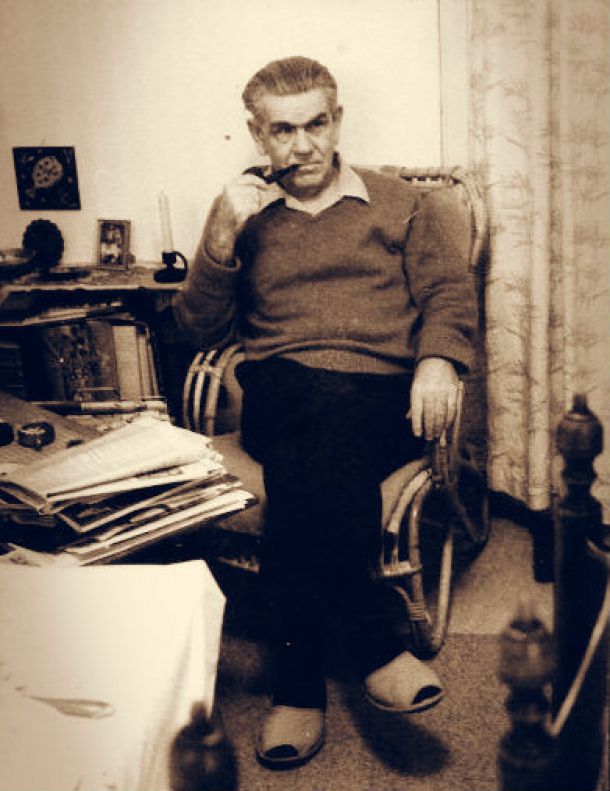

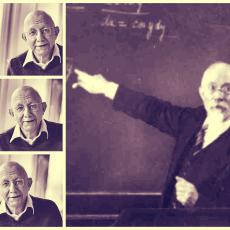
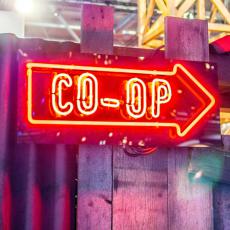
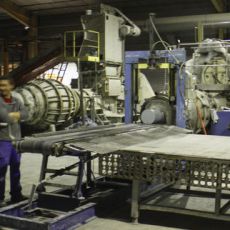
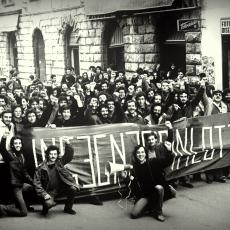
Comments
Post new comment